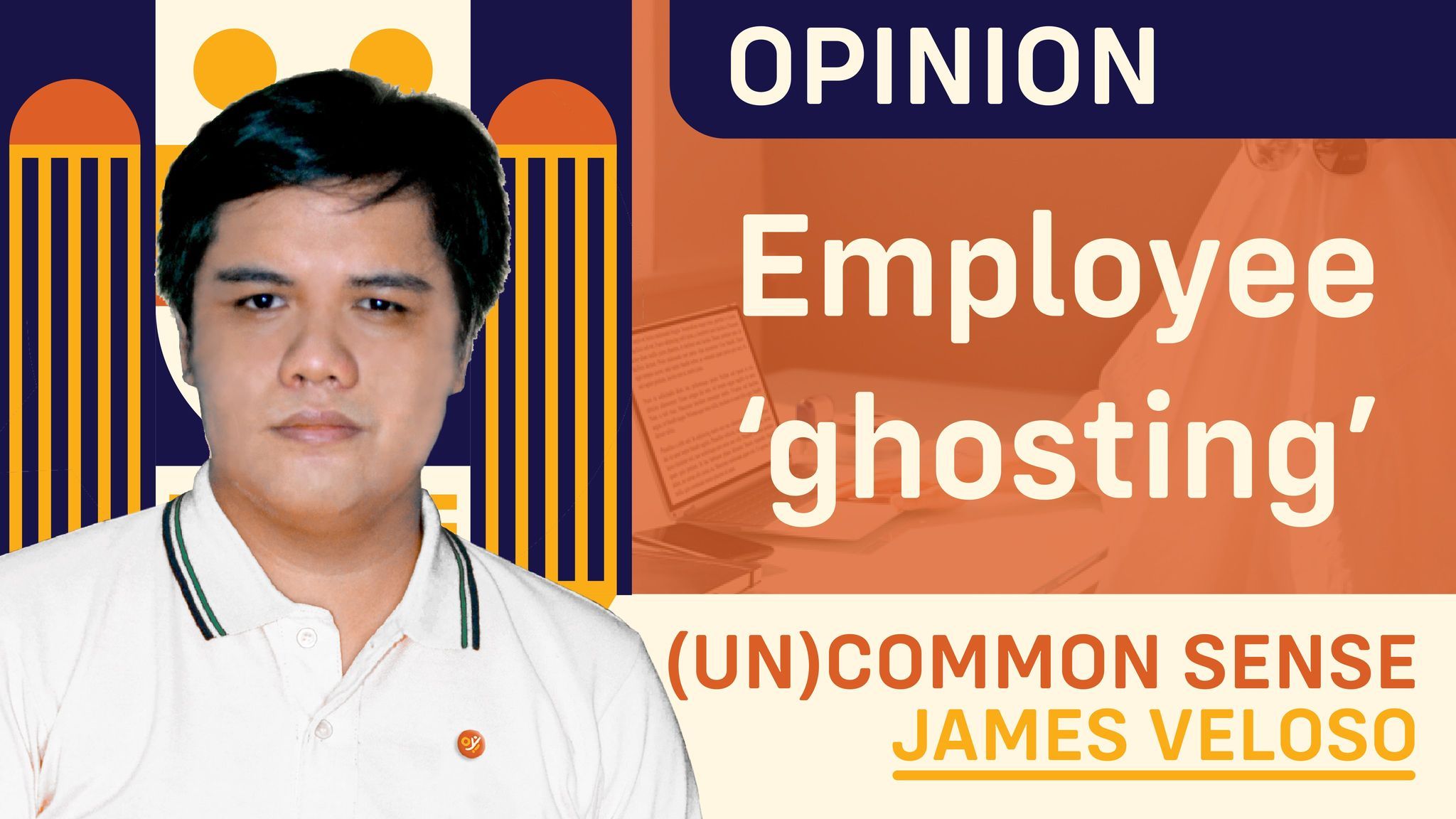While this job I have now at OpinYon was my first since graduating, this wasn’t the first company I had applied for.
Like many fresh graduates, I had run around Metro Manila for months after I graduated, trying to fit myself into the corporate world. Around September of 2014, I was shortlisted at a “knowledge-processing” company based in Makati City, and would have probably wound up there had not another opportunity opened at OpinYon, then based in Mandaluyong City.
The day I was to report for my first day at OpinYon, the HR personnel from that other company called me up, presumably to tell me that I had gotten the job. I had to tell them that much to my regret, I had found another job, so very sorry, hope you understand.
-o0o-
Why am I bringing this thing up?
You see, for the past nine years that I had worked my way up at OpinYon, I was struck by a disturbing trend of prospective employees who would suddenly disappear without a trace after an interview or a few days into the job.
Imagine the frustration we have – this promising new hire comes along, and then after a few days of orientation and training, the new hire fails to report to work without so much as an explanation (to me, but I wonder if they would also inform HR) about why they decided to quit.
Intrigued, I decided to check on this trend and came across a term I had never heard of before: “employee ghosting.”
This term was adapted from “relationship ghosting,” where your date or your “significant other” suddenly disappears from your life without telling you why. (By the way, to be clear, this is different from “ghost employees” that have become prevalent in our local politics.)
"In the recruitment process, ghosting commonly takes place after initial digital communication or a phone screening, during or after a series of job interviews, and even sometimes after the candidate receives or accepts a job offer. Just because a candidate signs your offer letter doesn’t mean you’re in the clear," as a Business.com article posted last October put it.
That same article noted that some potential employees feel “uncomfortable” telling their employer that they have changed their minds (especially in the Philippine culture of “hiya”), or “may just not know what to do in such a predicament.”
-o0o-
Let’s face it: as the so-called “pandemic generation” finally graduates and becomes a part of the workforce, chances are their employment preferences have also changed.
Today, high salaries and benefits are no longer the top considerations; factors such as the preference to stay with their family and friends, work environment and culture fit, and work-life balance are now also coming into play, according to a 2022 survey conducted by Jobstreet.com and the Department of Labor and Employment (DOLE).
But here’s a thing: is it too much for us to say to our prospective employers, “Sorry, but I believe this job is not for me” or “Sorry, but I believe I’m not the person you need”?
Honesty is a two-way street. Just as we expect our employers to be honest about what they need from us, let’s also be honest about what they should expect from us – and if, in our own personal assessment, we’re not the people that they expect us to be in the workplace.
#UnCommonSense #JamesVeloso #EmployeeGhosting #FreshGraduates #Ghosting #PandemicGeneration #DOLE #Salary #Employment #OpinYonColumn #OpinYon #WeTakeAStand
